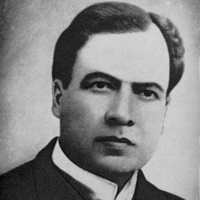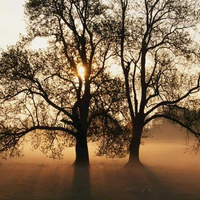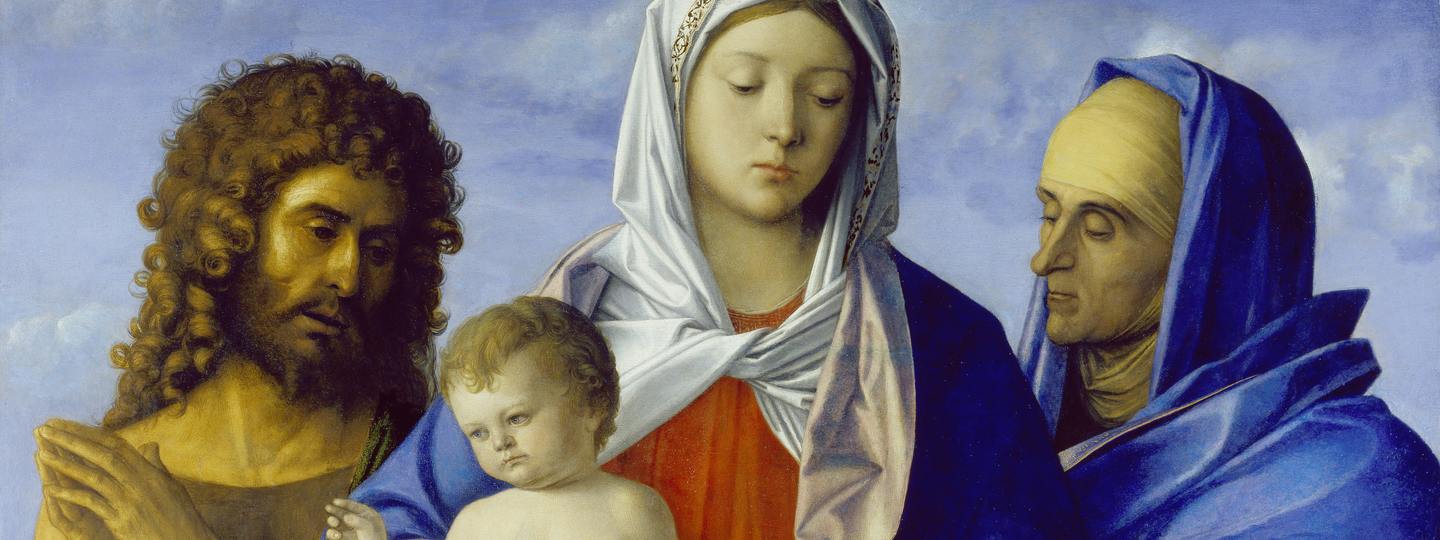
Info
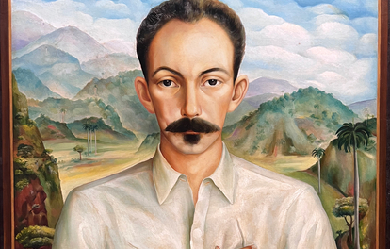

José Julián Martí Pérez (La Habana, Cuba, 28 de enero de 1853 – Dos Ríos, Cuba, 19 de mayo de 1895) fue un político liberal, pensador, periodista, filósofo y poeta cubano, creador del Partido Revolucionario Cubano y organizador de la Guerra del 95 o Guerra Necesaria. Perteneció al movimiento literario del modernismo.


Ajenony es el seudónimo del escritor Puertorriqueño Frank Santana. Frank Santana nació un 31 de enero en el pueblo de Vega Alta en “La Isla del encanto” Puerto Rico. En los primeros años de este siglo 21 crea “The Emporium” Un popular conglomerado en Internet que consta de más de 125 sitios y desde el cual compartió cientos de sus notas con sus más de 13 millones de visitantes (Hasta Febrero del 2017).A mediados del 2010 crea Ajenony Productions desde donde comienza a crear música y canciones para ayudar a interpretes jóvenes del estado de New York. En el 2011 y al extenderse su programa musical crea Emporium Sounds con el proposito de impulsar las carreras de sus pupilos al plano internacional. En la actualidad esta trabajando en su libro “El eco del silencio’ del cual hemos extraído algunas notas para este sitio. Suheil Diaz

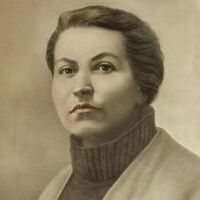
Gabriela Mistral, seudónimo de Lucila Godoy Alcayaga, (Vicuña, 7 de abril de 1889-Nueva York, 10 de enero de 1957) fue una poetisa, diplomática, profesora y pedagoga chilena. Por su trabajo poético, recibió el Premio Nobel de Literatura en 1945. Fue la primera mujer iberoamericanan y la segunda persona latinoamericanan en recibir un Premio Nobel. Carta a Gabriela por Juana de Ibarbourou, 1957 ¿Por qué caminos del alba andas descubriendo el cielo ese, prometido a unos los que sufrimos, creemos y le pedimos a Dios ir a bruñir sus luceros ? ¿Por qué sendas, asombrada, ya vas encontrando el cielo, mientras aquí las banderas y pueblos, están de duelo.? ¿Por qué te fuiste, tan pronto precipitando el invierno cuando aún, lleno de flores, se desgranaba febrero? Yucas y conquistadores te irán formando cortejo; Pizarro barbado y noble —bronce, plata, encaje, acero— con una ciudad de torres entre sus brazos sin huesos. Y una muchedumbre oscura que va detrás de Atahualpa te sigue cantando himnos en lengua quechua y aymara. Ya estás, Gabriela, en la gloria, mitad de princesa incaica, mitad de reina española, como Isabel, la magnánima. Ya sé que no has de escribir a nadie mas en la tierra, que oficinas de correo a la eternidad se veda. ¡Pero es tan dulce que sepas Gabriela, que toda América por ti está tan conmovida como tu patria chilena...! El cielo junto al copihue la orquídea venezolana se une a la victoria-regia del Brasil, y en la sabana de Colombia, los gomeros detienen su savia trágica. ¡Toda la flora de América quiere mirarte la cara! Asómate entre las nubes una tarde arrebolada; muéstranos tu frente ancha de madre tan bien amada, ¡déjanos poquito a poco, del todo no te nos vayas! Aquí ha quedado tu verso, tu palabra estructurada con lo mejor del idioma y lo mejor de tu alma. Pero nos falta tu rostro con la sonrisa cansada, que a todos nos descansaba cuando nos daba en los ojos. Oye, Gabriela, las voces desde tu «bosque perfecto» damos la señal que diga que llega a ti nuestro acento, y repasa, tu que tanto sobre la tierra anduviste, ¡reposa y se haga radiante su risa aquella, tan triste! Descubre el cielo y descansa, pero, Gabriela ¡no olvides!


Rafael Alberti Merello (Puerto de Santa María, 1902 - 1999) Poeta español, miembro de la Generación del 27. Sus padres pertenecían a familias de origen italiano asentadas en la región y dedicadas al negocio vinícola. Las frecuentes ausencias del padre por razones de trabajo le permitieron crecer libre de toda tutela, correteando por las dunas y las salinas a orillas del mar en compañía de su fiel perra Centella. Una infancia despreocupada, abierta al sol y a la luz, que se ensombrecerá cuando tenga que ingresar en el colegio San Luis Gonzaga de El Puerto, dirigido por los jesuitas de una forma estrictamente tradicional.


Nací en la Ciudad de México en 1967, año del Señor (equivalente al año cero "pepper" de la "beatlemanía"). Desde muy pequeño mis padres me miraban con preocupación, pues no parecía igual que mi hermano o mis primos. No me gustaban los deportes, las pelotas me llamaban la atención sólo por su condición esférica, pues esta forma geométrica es mi favorita y parece ser que la de Dios también, pues las burbujas y los astros tienden a esa figura enigmática. En lugar de correr tras un balón me pasaba la vida leyendo todo lo que llegaba a mi alcance. En casa no abundaban los libros, así que leía historietas o revistas, de las cuales aún conservo una vasta colección, porque aparte de mi extraño hábito de leer también tengo la costumbre de guardarlo todo. Es probable que mi verdadera vocación sea la de museólogo. Afortunadamente para mi, un vecino, padre de dos amigos de la escuela primaria, era un lector voraz y en tardes memorables me dio mis primeras lecciones de Literatura. Me regaló libros, lo que a mis padres no pareció gustarles mucho. La primera obra literaria que leí en mi vida fue "Tom Sawyer" de Mark Twain, después le seguiría "La cabaña del tío Tom" de Harriet Beecher Stowe. Ahí me di cuenta que los libros pueden cambiar al mundo. Con los años, gracias a las becas tuve la oportunidad de comprar más libros y luego descubriría las Bibliotecas que son para mi lo más cercano al Paraíso. Actualmente vivo en una de ellas, la que he podido conformar en décadas. Es fácil que me encuentren en todo lugar donde se vendan libros viejos ¡Amo ese maravilloso olor del papel añoso! A los doce años mis amigos leídos, no conocidos, me urgieron a escribir. Con un terrible miedo a la página en blanco empecé a hacerlo, para terror de mis amados padres que ya se habían resignado a vivir con mis rarezas, hasta me regalaron una máquina de escribir, que desde luego tengo conmigo todavía, es una Olivetti Lettera 32 y ¡Funciona! El tiempo que transcurre muy a nuestro pesar, ha hecho que se acumulen nueve libros de poemas, tres novelas, una obra de teatro y un guión cinematográfico. Todos pecados míos, guardados bajo llave en un lugar donde no pueden hacer daño a nadie. Lo que se mira en Poeticous es una breve muestra del pasado, cada intento de poema tiene el año en que fue escrito. Además de cosas que no me puedo callar, escritas a partir del 2013. Todos desaliñados como su autor. Los versos de cada poema, están como los dientes de Cervantes: "Mal acondicionados y peor puestos". Si han llegado hasta este punto de mi biografía son ustedes un Monumento a la Paciencia, igual que Job. Cordialmente, Alfredo Jiménez G. Eterno aprendiz de poeta.
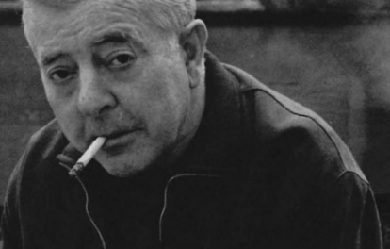
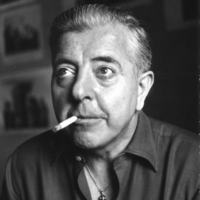
Jacques Prévert est un poète, scénaristeet artiste français, né le 4 février 1900 à Neuilly-sur-Seine, et mort le 11 avril 1977 à Omonville-la-Petite (Manche). Auteur de recueils de poèmes, parmi lesquels Paroles (1946), il devint un poète populaire grâce à son langage familier et à ses jeux sur les mots. Ses poèmes sont depuis lors célèbres dans le monde francophone et massivement appris dans les écoles françaises. Il a écrit des sketchs et des chœurs parlés pour le théâtre, des chansons, des scénarios et des dialogues pour le cinéma où il est un des artisans du réalisme poétique. Il a également réalisé de nombreux collages à partir des années 1940.


[b.] September 25, 1974, Tempe, AZ; [p.] Mr. Phil and Barbara K. Ransopher; [ed.] Bachelor of Arts in English (Language and Lit.); [occ.] library assistant, writer, editor; [memb.] Yahoo Groups: Appreciating Poetry (owner), Erotica Gallery (owner), Ex BBC Poetry Group (moderator), AATNAANPT (An All Totally New An All New Poetry Thread), Adult Amatuer (sic) Writers Emporium; [hon.] November 19, 2010 Poetic Skies Poem Of The Week (Her Love Has A Cold Wet Nose), May 15, 2015, First weekly winner for Fortune Poets group A Soldier's Fortune, 2015 Poet of the year for Fortune Poets; [pers.] I write what I see in my mind, what I feel in my heart, and what I know in my soul; [a.] Garland, TX


Nicolás Cristóbal Guillén Batista (Camagüey, 1902 - La Habana, 1989) Poeta cubano, considerado el máximo representante de la llamada poesía negra centroamericana, y poeta nacional de la isla por su obra ligada a la cultura afrocubana. Nicolas Guillén cursó un año de derecho en La Habana, antes de abandonar la universidad y volver a su ciudad donde trabajó como tipógrafo y se dedicó al periodismo en la redacción de El Camagüeyano, en cuyas páginas inició también su actividad literaria.


I am an American Patriot, a Believer, and a lover of God and Country. I am a widow, a mother of five children ❤️ and five grandchildren. ❤️ I’m very proud, and honored to have borne such loving, talented and hard working children. Being a Mother was my destiny. Being a writer is also part of my destiny that I truly thank God for. It’s a gift from God It was after my children were grown and left home that I became serious about writing. I have written a book titled (American Poetry and Music) that has been published by Christian Faith Publishing. Which can be purchased on Amazon.com, Barnes and Noble, and Thrift Books.com I get my inspiration from the Creator, and I go under the heading of H.S.I. Which stands for (Holy Spirit Inspiration) Some of these poems on Poeticous.com appear in my book . I am grateful for them allowing me to publish my poems on this site also. I’ve come to love this site very much. All Poems, and Original Music Videos on this site are my own original compositions, and are covered under U.S.Copyright laws.© 2024. For more info -You can find me on (Youtube) and (Facebook). Email no longer public, but if you message me from Facebook or here on Poeticous I’ll give it to you privately. No copyright infringement intended with any Pictures or videos used on these poetry pages. Some videos of artist I enjoy were obtained from Youtube, and some pictures are from Public Domain sites. Mostly they are the property of Poeticous I do not claim rights for any works except my own Original Work. Thank you, Charlotte B. Williams
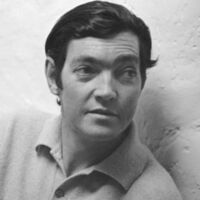
«Yo creo que desde muy pequeño mi desdicha y mi dicha, al mismo tiempo, fue el no aceptar las cosas como me eran dadas. A mí no me bastaba con que me dijeran que eso era una mesa, o que la palabra madre era la palabra madre y ahí se acaba todo. Al contrario, en el objeto mesa y en la palabra madre empezaba para mí un itinerario misterioso que a veces llegaba a franquear y en el que a veces me estrellaba. En suma, desde pequeño, mi relación con las palabras, con la escritura, no se diferencia de mi relación con el mundo en general. Yo parezco haber nacido para no aceptar las cosas tal como me son dadas.» Julio Florencio Cortázar Descotte (Ixelles, 26 de agosto de 1914 – París, 12 de febrero de 1984) fue un escritor, traductor e intelectual argentino nacido en Bélgica y nacionalizado francés. Se le considera uno de los autores más innovadores y originales de su tiempo, maestro del relato corto, la prosa poética y la narración breve en general.


Escribo poesía desde los 17 años. Hice mi aproximación a la literatura de la manos de los escritores ecuatorianos Velasco Mackenzi y Miguel Donoso Pareja, en la Casa de la Cultura de Guayaquil. Había muchos jóvenes entusiasta que escribían cuento, novela, poesía. También habían algunos consagrados y otros que después llegaron a escribir muy bien. He seguido cultivando el género de la poesía porque te permití escribir una historia rimada o en prosa en unas cuantas líneas. Es una lectura rápida para estos tiempos que andamos de prisa.
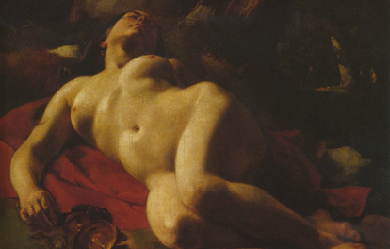

José Ángel Buesa (Cienfuegos, Cuba 1910-Santo Domingo, República Dominicana, 1982) fue un poeta romántico con un claro tono de melancolía a través de toda su obra poética, que es primordialmente elegíaca. Se le ha llamado el “poeta enamorado”. Ha sido considerado como el más popular de los poetas en la Cuba de su época. Su popularidad se debía en gran parte a la claridad y profunda sensibilidad de su obra.

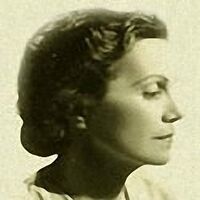
Dulce María Loynaz Muñoz (La Habana, Cuba; 10 de diciembre de 1902-Ibidem; 27 de abril de 1997) fue una escritora cubana, considerada una de las principales figuras de la literatura cubana y universal. Obtuvo el Premio Miguel de Cervantes en 1992. Publicó sus primeros poemas en La Nación, en 1920, año en que también visitó los Estados Unidos. A partir de esa fecha realizó numerosos viajes por Norteamérica y casi toda Europa, incluyendo visitas a Turquía, Siria, Libia, Palestina y Egipto. Visitó México en 1937, varios países de Sudamérica entre 1946 y 1947 y las Islas Canarias en 1947 y 1951, donde fue declarada hija adoptiva.

Rabindranath Tagoreα (7 May 1861 – 7 August 1941) was an Indian Bengali polymath who reshaped his region’s literature and music. Author of Gitanjali and its “profoundly sensitive, fresh and beautiful verse”, he became the first non-European to win the Nobel Prize in Literature in 1913. In translation his poetry was viewed as spiritual and mercurial; his seemingly mesmeric personality, flowing hair, and other-worldly dress earned him a prophet-like reputation in the West. His “elegant prose and magical poetry” remain largely unknown outside Bengal.
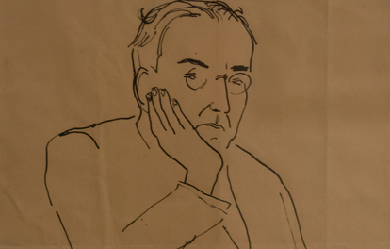

Antonio Machado Ruiz (Sevilla, 26 de julio de 1875 – Colliure, Francia, 22 de febrero de 1939) fue un poeta español, miembro tardío de la Generación del 98 y uno de sus miembros más representativos. Su obra inicial suele inscribirse en el movimiento literario denominado Modernismo. Fue el segundo de cinco hermanos de una familia liberal; el mayor de ellos, Manuel, trabajó junto a Antonio en varias obras.
▪️▪️▪️▪️▪️▪️▪️▪️▪️▪️ ▪️▪️▪️▪️▪️▪️▪️▪️ ▪️▪️▪️▪️▪️▪️ ▪️▪️▪️▪️ ▪️▪️▪️ ▪️▪️ ▪️ Finding my way with writing and poetry. 🪶The world makes more sense with poetry. Connect with me on: Tumblr: 1introvertedsage My Poetic Side: Introverted Sage All Poetry: Introverted Sage Substack: Introverted Sage
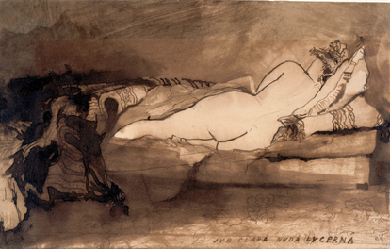
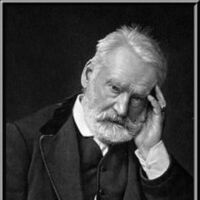
Victor Hugo est un poète, dramaturge, prosateur et dessinateur romantique français, né à Besançon le 26 février 1802 (le 7 ventôse an X selon le calendrier républicain encore en vigueur) et mort le 22 mai 1885 à Paris. Il est considéré comme l’un des plus importants écrivains de langue française. Il est aussi une personnalité politique et un intellectuel engagé qui a joué un rôle majeur dans l’histoire du xixe siècle. Il occupe une place marquante dans l’histoire des lettres françaises au xixe siècle, dans des genres et des domaines d’une remarquable variété. Au théâtre, Victor Hugo se manifeste comme un des chefs de file du Romantisme français lorsqu'il expose sa théorie du drame romantique dans les préfaces qui introduisent Cromwell en 1827, puis Hernani en 1830 qui sont de véritables manifestes, puis par ses autres œuvres dramatiques : Ruy Blas en 1838, mais aussi Lucrèce Borgia et Le Roi s'amuse.


Paul Laurence Dunbar was the first African-American poet to garner national critical acclaim. Born in Dayton, Ohio, in 1872, Dunbar penned a large body of dialect poems, standard English poems, essays, novels and short stories before he died at the age of 33. His work often addressed the difficulties encountered by members of his race and the efforts of African-Americans to achieve equality in America. He was praised both by the prominent literary critics of his time and his literary contemporaries. Dunbar was born on June 27, 1872, to Matilda and Joshua Dunbar, both natives of Kentucky. His mother was a former slave and his father had escaped from slavery and served in the 55th Massachusetts Infantry Regiment and the 5th Massachusetts Colored Cavalry Regiment during the Civil War. Matilda and Joshua had two children before separating in 1874. Matilda also had two children from a previous marriage. The family was poor, and after Joshua left, Matilda supported her children by working in Dayton as a washerwoman. One of the families she worked for was the family of Orville and Wilbur Wright, with whom her son attended Dayton's Central High School. Though the Dunbar family had little material wealth, Matilda, always a great support to Dunbar as his literary stature grew, taught her children a love of songs and storytelling. Having heard poems read by the family she worked for when she was a slave, Matilda loved poetry and encouraged her children to read. Dunbar was inspired by his mother, and he began reciting and writing poetry as early as age 6. Dunbar was the only African-American in his class at Dayton Central High, and while he often had difficulty finding employment because of his race, he rose to great heights in school. He was a member of the debating society, editor of the school paper and president of the school's literary society. He also wrote for Dayton community newspapers. He worked as an elevator operator in Dayton's Callahan Building until he established himself locally and nationally as a writer. He published an African-American newsletter in Dayton, the Dayton Tattler, with help from the Wright brothers. His first public reading was on his birthday in 1892. A former teacher arranged for him to give the welcoming address to the Western Association of Writers when the organization met in Dayton. James Newton Matthews became a friend of Dunbar's and wrote to an Illinois paper praising Dunbar's work. The letter was reprinted in several papers across the country, and the accolade drew regional attention to Dunbar; James Whitcomb Riley, a poet whose works were written almost entirely in dialect, read Matthew's letter and acquainted himself with Dunbar's work. With literary figures beginning to take notice, Dunbar decided to publish a book of poems. Oak and Ivy, his first collection, was published in 1892. Though his book was received well locally, Dunbar still had to work as an elevator operator to help pay off his debt to his publisher. He sold his book for a dollar to people who rode the elevator. As more people came in contact with his work, however, his reputation spread. In 1893, he was invited to recite at the World's Fair, where he met Frederick Douglass, the renowned abolitionist who rose from slavery to political and literary prominence in America. Douglass called Dunbar "the most promising young colored man in America." Dunbar moved to Toledo, Ohio, in 1895, with help from attorney Charles A. Thatcher and psychiatrist Henry A. Tobey. Both were fans of Dunbar's work, and they arranged for him to recite his poems at local libraries and literary gatherings. Tobey and Thatcher also funded the publication of Dunbar's second book, Majors and Minors. It was Dunbar's second book that propelled him to national fame. William Dean Howells, a novelist and widely respected literary critic who edited Harper's Weekly, praised Dunbar's book in one of his weekly columns and launched Dunbar's name into the most respected literary circles across the country. A New York publishing firm, Dodd Mead and Co., combined Dunbar's first two books and published them as Lyrics of a Lowly Life. The book included an introduction written by Howells. In 1897, Dunbar traveled to England to recite his works on the London literary circuit. His national fame had spilled across the Atlantic. After returning from England, Dunbar married Alice Ruth Moore, a young writer, teacher and proponent of racial and gender equality who had a master's degree from Cornell University. Dunbar took a job at the Library of Congress in Washington, D.C. He found the work tiresome, however, and it is believed the library's dust contributed to his worsening case of tuberculosis. He worked there for only a year before quitting to write and recite full time. In 1902, Dunbar and his wife separated. Depression stemming from the end of his marriage and declining health drove him to a dependence on alcohol, which further damaged his health. He continued to write, however. He ultimately produced 12 books of poetry, four books of short stories, a play and five novels. His work appeared in Harper's Weekly, the Sunday Evening Post, the Denver Post, Current Literature and a number of other magazines and journals. He traveled to Colorado and visited his half-brother in Chicago before returning to his mother in Dayton in 1904. He died there on Feb. 9, 1906. Literary style Dunbar's work is known for its colorful language and a conversational tone, with a brilliant rhetorical structure. These traits were well matched to the tune-writing ability of Carrie Jacobs-Bond (1862–1946), with whom he collaborated. Use of dialect Much of Dunbar's work was authored in conventional English, while some was rendered in African-American dialect. Dunbar remained always suspicious that there was something demeaning about the marketability of dialect poems. One interviewer reported that Dunbar told him, "I am tired, so tired of dialect", though he is also quoted as saying, "my natural speech is dialect" and "my love is for the Negro pieces". Though he credited William Dean Howells with promoting his early success, Dunbar was dismayed by his demand that he focus on dialect poetry. Angered that editors refused to print his more traditional poems, he accused Howells of "[doing] my irrevocable harm in the dictum he laid down regarding my dialect verse." Dunbar, however, was continuing a literary tradition that used Negro dialect; his predecessors included Mark Twain, Joel Chandler Harris, and George Washington Cable. Two brief examples of Dunbar's work, the first in standard English and the second in dialect, demonstrate the diversity of the poet's production: (From "Dreams") What dreams we have and how they fly Like rosy clouds across the sky; Of wealth, of fame, of sure success, Of love that comes to cheer and bless; And how they wither, how they fade, The waning wealth, the jilting jade — The fame that for a moment gleams, Then flies forever, — dreams, ah — dreams! (From "A Warm Day In Winter") "Sunshine on de medders, Greenness on de way; Dat's de blessed reason I sing all de day." Look hyeah! What you axing'? What meks me so merry? 'Spect to see me sighin' W'en hit's wa'm in Febawary? List of works * Oak and Ivy (1892) * Majors and Minors (1896) * Lyrics of Lowly Life (1896) * Folks from Dixie (1898) * The Strength of Gideon (1900) * In Old Plantation Days (1903) * The Heart of Happy Hollow (1904) * Lyrics of Sunshine and Shadow (1905) References Paul Laurence Dunbar Website - www.dunbarsite.org/biopld.asp Wikipedia- http://en.wikipedia.org/wiki/Paul_Laurence_Dunbar

Escribo para el no tiempo, para un presente sin ausentes donde todos comprenden la Cancion de la Luz ! Escribo para la Jerarquia que transformara la vida en la mas elevada consciencia. Escribo poemas que son puentes al Infinito. Escribo por que escribiendo vivo Escribo y cada palabra que escribo es un latido De mi corazón rendido al eterno Amor Escribo a sabiendas de que mucho de lo que Escribo no será bien comprendido Pero igual lo escribo Luis - Poesía Esotérica

George Gordon Byron, 6th Baron Byron FRS; 22 January 1788 – 19 April 1824), simply known as Lord Byron, was an English poet and peer. One of the leading figures of the Romantic movement, Byron is regarded as one of the greatest English poets. He remains widely read and influential. Among his best-known works are the lengthy narrative poems Don Juan and Childe Harold's Pilgrimage; many of his shorter lyrics in Hebrew Melodies also became popular. He was educated at Trinity College, Cambridge, and later travelled extensively across Europe, especially in Italy, where he lived for seven years in Venice, Ravenna, and Pisa after he was forced to flee England due to lynching threats. During his stay in Italy, he frequently visited his friend and fellow poet Percy Bysshe Shelley. Later in life Byron joined the Greek War of Independence fighting the Ottoman Empire and died leading a campaign during that war, for which Greeks revere him as a folk hero. He died in 1824 at the age of 36 from a fever contracted after the First and Second Sieges of Missolonghi.
nacido en un rinconcito "el rincon de dolores " en Cd. Hidalgo Michoacan Mex. el 01 de febrero del año 1934, la mayor parte de su vida la ha vivido en Cd. Hidalgo Mich. donde actualmente vive con su esposa Bertha Olivarez Perez. Don Salvador es una persona honorable, de buen corazon, dedicado en todo lo que hace con un entusiasmo por la vida.

Joseph Rudyard Kipling (30 December 1865 – 18 January 1936) was an English novelist, short-story writer, poet, and journalist. He was born in British India, which inspired much of his work. Kipling was one of the most popular writers in England, in both prose and verse, in the late 19th and early 20th centuries. Henry James said: “Kipling strikes me personally as the most complete man of genius (as distinct from fine intelligence) that I have ever known.”












